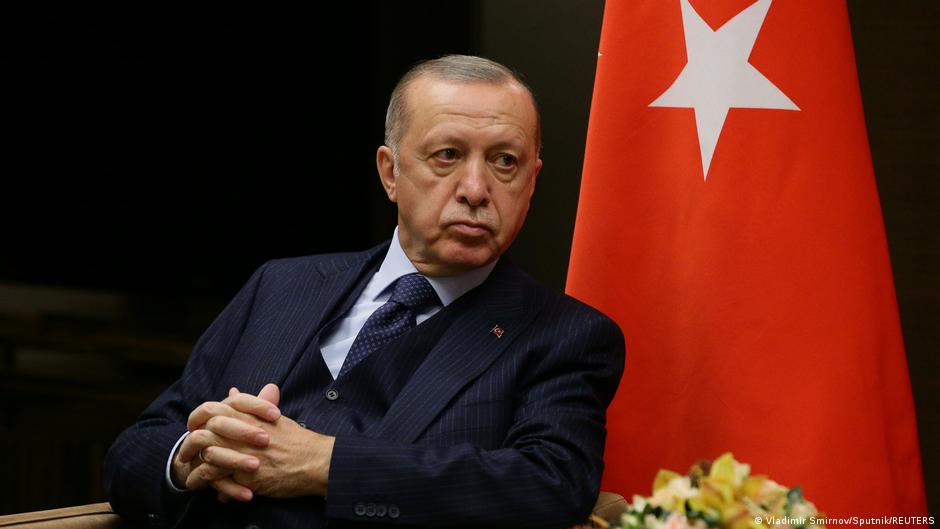It is disconcerting, indeed, the way Russia’s invasion of Ukraine has fuelled the ambitions of autocratic rulers who seem to be too tempted to take a leaf out of the book of an autocrat like President Vladimir Putin. It is an open secret how China’s President Xi Jinping is making subtle moves to invade Taiwan which has spurred the USA and its three allies in the Quad grouping – Australia, Japan and India – to use the recent Tokyo summit to make the right noises that they would not keep quiet in such an eventuality. But, similar ambitions of another autocrat, Turkish President Recep Tayyip Erdogan to carve out strategic land out of Syria are being aired soon after Russia’s adventure in Ukraine. Tension is running high with the US-backed Syrian Kurdish fighters and Turkish forces in league with Turkey-backed Syrian opposition gunmen who are exchanging fire and shelling continually for the past few weeks. Erdogan appears to be trying to take advantage of the war in Ukraine to advance his own agenda in neighbouring Syria. Significantly, his threat to veto NATO membership for Finland and Sweden is being construed as an attempt to leverage his position and forcibly occupy land in Syria.
Erdogan indicated last month his plans to renew Turkish efforts to create a 30-kilometer deep buffer zone in Syria, along its southern border through a cross-border incursion against US-allied Syrian Kurdish fighters. In fact, he had tried to create that zone in 2019 but failed to do so, despite a military operation. “We will come down on them suddenly one night. And we must,” Erdogan said, without specifying when he would launch the offensive. If he does so, this will be the fourth major operations inside Syria since 2016, targeting Syria’s main Kurdish militia— the People’s Protection Units or YPG — which Turkey considers to be a terrorist organisation and an extension of the outlawed Kurdistan Workers’ Party, or PKK. The PKK has, for decades, been carrying out insurgency within Turkey against the government in Ankara. The YPG, however, forms the lynchpin of the fight by US-led forces against Islamic State militants. Though Turkey failed to fulfill its ambition through the last three military operations, it has succeeded in wresting control over a large swath of Syrian territory, including the towns of Afrin, Tel Abyad and Jarablus.
Ankara plans to build thousands of housing units in those areas to ensure the “voluntary return” of 1 million out of the 3.7 million Syrian refugees currently in Turkey. Erdogan made it clear late last week that Turkish troops would strive to capture new areas, including the towns of Tel Rifaat and Manbij, which are located on a major intersection of roads on Syria’s west-east highway. Turkey says the Syrian Kurdish fighters use Tel Rifaat as a base to attack areas held by Turkey-backed Syrian opposition fighters. Though a Turkish invasion is still in the realm of speculation, analysts say Erdogan is unpredictable and he is in the habit of taking high risks. Now, it is an opportune moment for him as the Russians are preoccupied with the war in Ukraine and the Americans need him not to raise any objections to the expansion of NATO to include Finland and Sweden. There is also another reason for an invasion benefiting Erdogan.
A Syrian offensive would mean an opportunity to mobilise Turkish nationalist voters for the Turkish presidential elections a few months away. The economy is sliding down with inflation running at 73.5%. Incursion into Syria in the past to flush out YPG had helped Erdogan in past elections. Syrian Kurdish fighters, however, are not prepared to take Turkey’s latest threat lightly and they are gearing up for a possible attack. They warn that an incursion would affect their ongoing fight against IS and their ability to protect prisons in northern Syria where thousands of extremists, many of them foreign nationals, have been locked up since IS was defeated territorially three years ago.
Turkey also must bear in mind that any large-scale military operation would be highly risky as this could enrage both the US and Russia for different reasons. Turkey and Russia support rival sides in Syria’s 11-year conflict, but have been closely coordinating in the country’s north. Russia has not yet officially commented on Erdogan’s threat. All the same, it has sent fighter jets and helicopter gunships to a base close to the border with Turkey, going by reports of the Syrian opposition activists.
Russia has played a crucial role as a close ally of Damascus in the Syrian conflict in favour of its President Bashar al-Assad. Washington has made it clear its opposition to a Turkish military incursion on the ground that gains in the campaign against IS would be lost. It may seem like sheer madness to turn both the US and Russia into enemies. Erdogan is in a tricky situation but his ambition to win the election may make him act without prudence and the Turkish autocrat is known to take risks if he is convinced he would gain.
